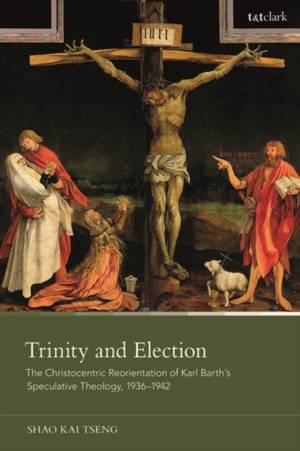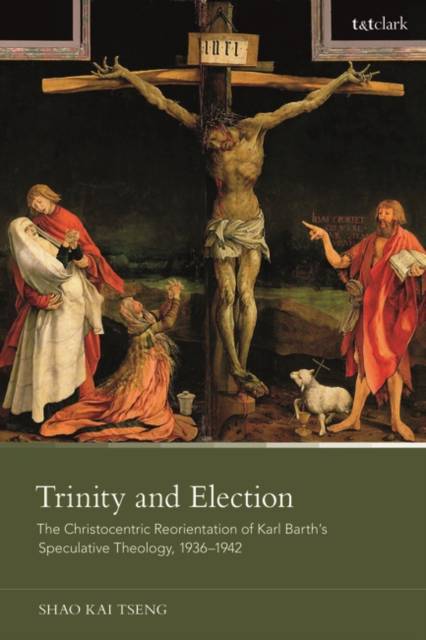
Bedankt voor het vertrouwen het afgelopen jaar! Om jou te bedanken bieden we GRATIS verzending (in België) aan op alles gedurende de hele maand januari.
- Afhalen na 1 uur in een winkel met voorraad
- In januari gratis thuislevering in België
- Ruim aanbod met 7 miljoen producten
Bedankt voor het vertrouwen het afgelopen jaar! Om jou te bedanken bieden we GRATIS verzending (in België) aan op alles gedurende de hele maand januari.
- Afhalen na 1 uur in een winkel met voorraad
- In januari gratis thuislevering in België
- Ruim aanbod met 7 miljoen producten
Zoeken
Trinity and Election
The Christocentric Reorientation of Karl Barth's Speculative Theology, 1936-1942
Shao Kai Tseng
Hardcover | Engels
€ 195,45
+ 390 punten
Omschrijving
Challenging Bruce McCormack's paradigm of post-Kantian Barth scholarship, this book builds on the interpretative model that Sigurd Baark developed in 2018. This model interprets Barth's innovative adoption of an Anselmian mode of theological speculation, against the intellectual-historical background of the idealist tradition of speculative metaphysics that culminated in Hegel.
This book argues that Barth adopted the Anselmian mode of speculation in which immediate self-identity between subject, object, and act is found in the triune God alone, while the speculative identity that enables human knowledge of God is none other than the identity between God-in-and-for-Godself and God-for-us. Exploring the nationalistic dimension of speculative metaphysics in 19th-century Germany, Tseng identifies this as an important aspect of the context of Barth's development of a Christocentric form of speculative theology.
This book argues that Barth adopted the Anselmian mode of speculation in which immediate self-identity between subject, object, and act is found in the triune God alone, while the speculative identity that enables human knowledge of God is none other than the identity between God-in-and-for-Godself and God-for-us. Exploring the nationalistic dimension of speculative metaphysics in 19th-century Germany, Tseng identifies this as an important aspect of the context of Barth's development of a Christocentric form of speculative theology.
Specificaties
Betrokkenen
- Auteur(s):
- Uitgeverij:
Inhoud
- Aantal bladzijden:
- 280
- Taal:
- Engels
Eigenschappen
- Productcode (EAN):
- 9780567709318
- Verschijningsdatum:
- 23/02/2023
- Uitvoering:
- Hardcover
- Formaat:
- Genaaid
- Afmetingen:
- 156 mm x 234 mm
- Gewicht:
- 566 g

Alleen bij Standaard Boekhandel
+ 390 punten op je klantenkaart van Standaard Boekhandel
Beoordelingen
We publiceren alleen reviews die voldoen aan de voorwaarden voor reviews. Bekijk onze voorwaarden voor reviews.









